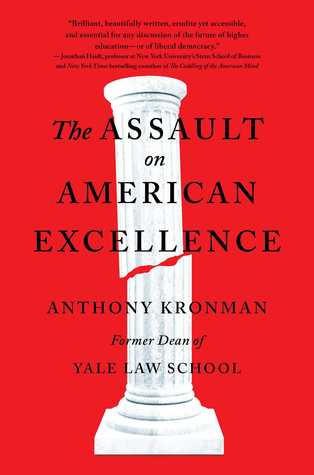
The Assault on American Excellence
کتاب های مرتبط
- اطلاعات
- نقد و بررسی
- دیدگاه کاربران
نقد و بررسی

June 1, 2019
A defense of academic elitism by a former academic at an elite institution. Former Yale Law School dean and longtime professor Kronman (Confessions of a Born-Again Pagan, 2016, etc.) takes a jaundiced view of the underlying sentiments that have lately manifested in a series of events at that university and others: the abandonment by one college "master" of that term to avoid causing offense to those who might connect it to "the racism and hierarchy of the antebellum South"; the censure of two other masters for supposedly denigrating minority students by not issuing explicit instructions on what costumes students could wear on Halloween; the rise of "trigger warnings"; and so forth. An erstwhile anti-war activist and student radical whose "politics have mellowed since," the author counters that college is necessarily an elite institution, that there is a hierarchy of values and ethics in the pursuit of knowledge and the ancient Greek ideal of excellence, and that democratization taken to extremes can only destroy those "islands of excellence in a democratic sea." Kronman sees the most extreme damage as falling on the humanities, which "sound in an aristocratic register that today one is ashamed to acknowledge, yet alone proclaim." One aspect of that aristocratic register is the distinction in accomplishment and rank between master/professor and student and the Socratic notion that there is a "rank order of human greatness"; another is the thought that tolerance of ambiguity and dissonance is part of the academic experience; still another is that academic institutions are "a community of conversation with a special ethic of its own," not a haven for retreat from uncomfortable thoughts or a safe space against microaggressions. Invoking Arendt, Orwell, de Tocqueville, and others, Kronman delivers a coherent, provocative case for a return to traditional academic values--though it's one that is not likely to sway those who adhere to modern/postmodern mores. Certain to cause more arguments than it settles and likely to appeal most to the Allan Bloom/Jacques Barzun wing.
COPYRIGHT(2019) Kirkus Reviews, ALL RIGHTS RESERVED.

























دیدگاه کاربران